How to Purchase Wholesale Directly from Chinese Factories
On this page
Introduction
Purchasing wholesale directly from Chinese factories can be a lucrative venture for businesses seeking to enhance their product offerings while keeping costs low. With China being a global manufacturing powerhouse, understanding the nuances of this process can significantly impact your success. In this guide, we will explore the essential steps and key considerations for effectively sourcing products directly from Chinese manufacturers.Key Factors to Confirm Before Buying Directly from a Chinese Factory
Before diving into wholesale purchasing, it’s crucial to confirm several key factors that will help you make informed decisions and ensure a smooth transaction.1. Identify the Goods You Want to Import
The first step in the purchasing process is to clearly define the products you intend to import. This involves conducting thorough market research to understand demand, trends, and pricing for your chosen goods. Consider the following:Product Specifications
Know the details about the materials, dimensions, and features of the products you want to import. Having clear specifications can help in obtaining accurate quotes from suppliers.Target Market
Identify your target audience and understand their preferences. This insight will guide you in selecting the right products that align with customer demands.Regulatory Compliance
Ensure that the goods you plan to import comply with local regulations, safety standards, and certifications to avoid issues during customs clearance.2. Verify Your Import Rights
Understanding your import rights is critical for avoiding legal complications. This includes:Import Regulations
Familiarize yourself with the laws governing imports in your country, including tariffs, duties, and any restrictions on specific goods.Licensing Requirements
Determine if you need any special licenses or permits to import certain products. This step is particularly important for goods like electronics, chemicals, or food items, which may have strict regulations.Documentation
Prepare all necessary documentation, such as invoices, bills of lading, and customs declarations, to facilitate a smooth import process.3. Assess the Desired Factory Capacity
Evaluating the factory's capacity is essential for ensuring they can meet your demands. Consider the following:Production Capabilities
Assess whether the manufacturer has the machinery, workforce, and technology to produce the quantities you require.Lead Times
Inquire about production lead times to ensure they align with your business needs. Understanding their scheduling will help you manage inventory and meet customer demands effectively.Quality Control Processes
Look for manufacturers that have established quality control procedures to minimize the risk of defects and ensure that products meet your specifications.4. Types of Manufacturers to Consider
Understanding the type of manufacturer is also important when sourcing products:Organized Manufacturer
Typically faces fewer quality issues but tends to have higher costs and limited flexibility. They often have established processes and standards in place, making them reliable for consistent quality.Semi-Organized Manufacturer
Offers relatively low costs, although quality can be inconsistent. The reliability of these manufacturers often depends on the motivation and oversight of top management, making communication and relationship-building crucial.Unstructured Workshop
Provides very low costs and low minimum order quantities (MOQs). However, these workshops require close supervision and micromanagement by the owner, as quality control may not be as robust.How to Purchase Directly from Chinese Factories?
Once you’ve confirmed the necessary factors, you can explore various avenues for purchasing directly from Chinese factories.1. Attend Trade Fairs in China
One of the most effective ways to connect with manufacturers is by attending trade fairs in China. Events such as the Canton Fair and the China International Industry Fair gather thousands of suppliers and buyers, offering you the chance to: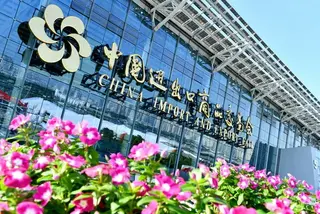
Network with Manufacturers
Meet potential suppliers face-to-face and discuss your requirements in detail.
Evaluate Products
Inspect the quality of products in person before making a commitment.Negotiate Terms
Discuss pricing, MOQs, and delivery terms directly with manufacturers.2. Purchase from Wholesale Markets in China
Wholesale markets in China are a treasure trove for buyers looking to source products in bulk. Markets such as Yiwu International Trade City and the Shenzhen Wholesale Market allow you to:Explore a Variety of Products
Browse through a wide range of goods and find unique items that may not be available online.Negotiate Prices
Engage in direct negotiations with sellers to secure better pricing and terms.Build Relationships
Establish connections with suppliers for future purchases and build trust over time.3. Discover Chinese Suppliers Online
Several online platforms facilitate the connection between buyers and Chinese manufacturers, making it easier to source products. Here are some of the top websites to consider:Alibaba.com
A leading marketplace that connects buyers with manufacturers and suppliers. It offers a wide range of products, including EV chargers, along with supplier ratings, allowing you to review product specifications and customer feedback.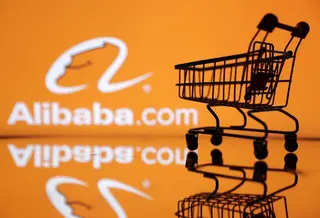
Made-in-China.com
Provides access to numerous manufacturers and detailed product listings. This platform includes tools for verifying supplier credentials and reviewing product certifications.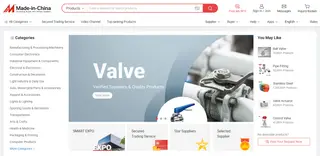
GlobalSources.com
Focuses on connecting buyers with verified suppliers and offers extensive product information and supplier evaluations. This site is particularly beneficial for finding reputable manufacturers.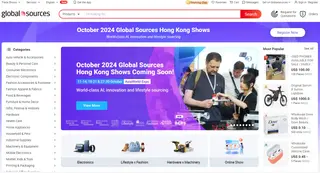
AliExpress.com
Ideal for smaller orders and exploring unique products. It features buyer reviews and product ratings to assist in decision-making.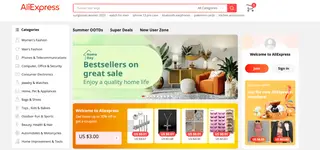
CNMFRS.com
A professional B2B platform dedicated to connecting global buyers with Chinese manufacturers. It offers a wide array of competitively priced goods across various sectors, including electronics, machinery, and consumer goods. The user-friendly interface allows for efficient browsing, searching, comparing, and direct communication with suppliers.
3 Tips for Wholesale Purchasing from China
To maximize your success when purchasing wholesale from China, keep these tips in mind:Avoid Overstating Your Business
While it’s important to present your business professionally, avoid exaggerating your capabilities or operations to suppliers. Transparency fosters trust and leads to better relationships with manufacturers, resulting in smoother transactions and collaborations.Introduce Yourself to Suppliers
Taking the time to introduce yourself to potential suppliers can set the stage for a successful partnership. Share information about your business, including your goals and the types of products you intend to import. This can help manufacturers understand your needs better and tailor their offerings accordingly.Don't Blindly Chase the Lowest Prices
While competitive pricing is important, focusing solely on the lowest prices can lead to poor quality products or unreliable suppliers. Instead, consider the overall value, including product quality, supplier reliability, and service. Establishing a long-term partnership with a reputable manufacturer can be more beneficial than simply seeking the cheapest option.Conclusion
Purchasing wholesale directly from Chinese factories can be a rewarding opportunity for businesses willing to navigate the complexities of international sourcing. By confirming essential factors, exploring various purchasing avenues, and following best practices, you can establish fruitful relationships with manufacturers that enhance your product offerings and contribute to your business's success. With careful planning and informed decision-making, you can harness the advantages of sourcing from China while mitigating potential risks.Next: How to Find Excellent Chinese Valve Manufacturers
Previous: Guide to Investing in EV Charging Stations
